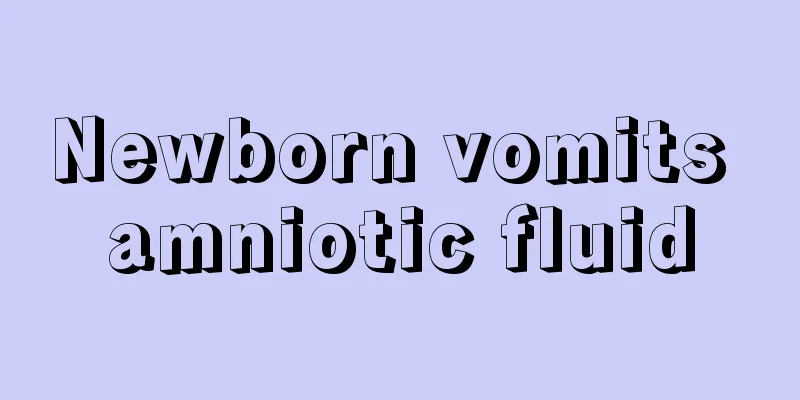What's wrong with the little girl's big belly?

|
A little girl's big belly may be caused by water in the abdominal cavity or gas in the belly. These conditions will affect the enlargement of the belly. However, a little girl with a big belly should drain the water or gas in the belly, otherwise it will affect the normal development of the girl and will slowly turn into diseases such as nephrotic syndrome and cirrhosis. 1. A child’s big belly may be caused by water in the abdominal cavity It's called ascites. Under normal circumstances. There is a small amount of ascites in the abdominal cavity. If there is too much water, the belly will bulge outward. There are many causes of ascites, such as systemic malnutrition, chronic heart failure, nephrotic syndrome, cirrhosis, primary or metastatic tumors in the abdominal cavity, etc. 2. A child’s big belly may be caused by gas in the stomach Under normal circumstances, the gas in the intestinal cavity can be discharged through the anus through intestinal peristalsis; if the abdominal bloating is very severe, the abdominal cavity will become soft after the gas is discharged. If there is intestinal obstruction or weakened intestinal motility, gas will accumulate in the intestinal cavity. Some babies cry violently due to colic and swallow more air into the intestinal cavity. A very small number of children may also have abdominal bloating due to eating too much starchy food (such as sweet potatoes or flour). 3. A child’s big belly may be due to enlarged organs in the abdominal cavity In particular, the enlargement of solid organs in the abdominal cavity, such as the liver, spleen, kidneys, and lymph nodes caused by various reasons, can also cause abdominal bloating. Sometimes, several of the above conditions may exist at the same time. For example, in case of intestinal obstruction or intussusception, there is both fluid and air accumulation in the intestinal cavity; visceral tumors in the abdominal cavity enlarge and may metastasize to the peritoneum, resulting in ascites; gastric or intestinal perforation or abdominal trauma causes the abdominal cavity to be filled with gas and fluid. 4. A child’s big belly may be due to intestinal disease When parents find that their baby's belly is big, it is usually due to bloating. The mother can pat the baby's belly. If the baby feels pain and cries loudly, he may have a gastrointestinal disease. If the baby breathes rapidly at this time, it is likely that the bloating has reached the diaphragm between the chest and abdominal cavity. Parents should take the baby to the hospital immediately. 5. A child’s big belly may be caused by bacterial infection Flatulence may also be caused by bacterial infection. If the baby is infected with Salmonella, the gastrointestinal bacteria will produce gas effect, which will cause flatulence symptoms. Big belly, vomiting, diarrhea, etc. Once parents discover this phenomenon, they should seek medical attention immediately to avoid delaying the disease. How to treat a child's big stomach and indigestion Domperidone can increase the tension and peristalsis of gastrointestinal smooth muscles, speed up gastric emptying, allow the stomach to be unobstructed, digest and propel food, promote the excretion of food and intestinal gas, and thus eliminate various symptoms of indigestion. Used for indigestion, bloating, belching, nausea and vomiting. Lactase is a dried preparation of live enterococci. It can break down sugars in the intestines, generate lactic acid, increase intestinal acidity, thereby inhibiting the growth and reproduction of putrefactive bacteria, preventing intestinal fermentation, reducing belching, promoting digestion and stopping diarrhea. Used for indigestion, abdominal distension, diarrhea and green stools caused by eating disorders in children. Pancreatic enzymes (also known as pancreatic juice and pancreatic enzymes) can promote the digestion of protein, starch and fat in a neutral or weakly acidic environment. It can be used for indigestion, loss of appetite, and digestive disorders caused by liver and pancreatic diseases. Pepsin can decompose coagulated protein with the participation of gastric acid and is used for indigestion caused by decreased digestive function. |
<<: How to make mashed potatoes for nine-month-old babies
>>: How long does it take for a bruise on the baby's face to heal?
Recommend
What are the ways to relieve toothache caused by tooth decay in children?
Children tend to eat sweet foods, such as candy, ...
Red spots appear on the soles of children's feet
It is a very common phenomenon for children to ha...
Why does my baby eat less milk?
During the breastfeeding period, you need to pay ...
Neonatal pulse standard
Many parents pay special attention to the pulse o...
Treatment for a baby's swollen eye
When a baby has a swollen eye, our parents often ...
What are the treatments for ADHD?
ADHD is one of the most common symptoms among chi...
Causes and treatment of perioral dermatitis in children
Introduce the causes and treatments of perioral d...
How to deal with toddler temper tantrums
Children nowadays are the big treasures of the fa...
What to do if your child has eczema on his hands
Children's bodies are relatively fragile and ...
What causes bad breath in 8-month-old babies?
Everyone may think that bad breath is something t...
Baby Nutrition Porridge Recipe Introduction
Many parents are confused about what kind of food...
How should I treat a baby with a fever of 39 degrees?
Most of the time, children's fever is caused ...
What causes torticollis in children? Causes of torticollis in children
Torticollis in children, also known as goiter, is...
Why do children have deformed teeth?
People grow and develop throughout their lives, a...
What is the correct way to take medicine for otitis media in children?
If a child suffers from otitis media, there will ...









